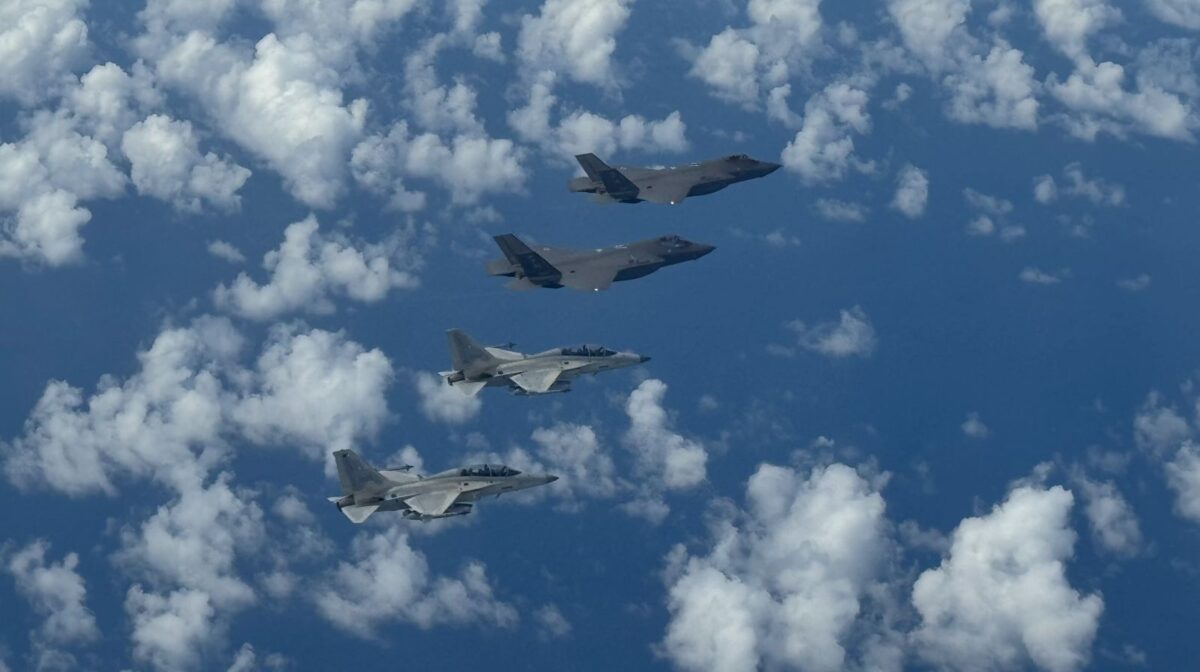US fighter aircraft F-35 joins PAF patrol to mark annual air drills
MANILA, Philippines — The Philippine Air Force (PAF) and its counterparts from the United States Pacific Air Forces (Pacaf) conducted a joint patrol Monday to mark the second iteration of “Cope Thunder” bilateral air drills this year.
Pacaf’s F-35 fighter aircraft joined PAF’s light combat aircraft FA-50 in patrolling the country’s territorial waters and exclusive economic zone including the West Philippine Sea.
Officials said the US stealth fighter jets were deployed in the Cope Thunder drills for the first time.
“The fact of the matter is, the F-35 is a cornerstone of the US.[Pacific Air] Forces,” said Lt. Col. Bryan Mussler in an interview with reporters on the sidelines of the opening of the Cope Thunder in Mabalacat, Pampanga.
READ: US, PH air forces start ‘Cope Thunder’ war games
Cope Thunder exercise director Col. Jonathan De Leon said the deployment of the F-35 is a “great opportunity” for PAF pilots to be familiarized with the aircraft.
The second iteration of this year’s Cope Thunder drills will see 12 PAF aircraft including A-29B Super Tucanos, AW109 helicopters, as well as S-76A, and S-70i Black Hawk helicopters, as well as 2,301 participants.
Aside from the F-35, the Pacaf also committed 235 personnel.
De Leon noted that previous Cope Thunder iterations only involved about one-third of the current number of participating personnel.
The largest-ever Cope Thunder in terms of volume of personnel will lead to “more realistic practice to prepare us for bigger security challenges.”
Cope Thunder started in the Philippines in 1976 and went on until 1990.
The exercises were discontinued after the US military left Clark Field and Subic Bay in 1991 due to damage from the Mt. Pinatubo’s eruption in June that year and also after the Philippine Senate voted against extending the lease on US military facilities in the country.
The first iteration of Cope Thunder since the 1990s was held in 2023.
This year’s Cope Thunder’s second iteration, which also involves subject matter expert exchanges and field training exercises, will run from July 7 to 18 in multiple training locations in Luzon.
This month is the wet season for the country, and bad weather could prevent flight, but Mussler said even the rains could not stop the exercise itself.
“We’re hoping for good weather to fly, but if it’s bad weather, that’s okay,” he said. “It doesn’t stop us from learning from one another.” /cb



















